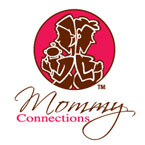Top parenting stories this week
Postpartum Depression
December 22nd, 2009
How to spot the signs of postpartum depression and get help–now.
by: Elizabeth Pantley
In This Article
Postpartum Depression
- Up to 15% of new mothers suffer from postpartum depression (PPD).
- Postpartum depression is an illness caused by biochemical and hormonal changes following pregnancy and birth.
- Your OB/GYN or midwife can help you find a doctor that specializes in PPD.
- Learning more about baby care will help you feel more in control as a parent, which can help reduce your risks of postpartum depression.
- PPD support groups are excellent resources, but any group for new mothers can help you feel less isolated.
P
ostpartum depression doesn't mean you've done anything wrong–or that something is wrong with you. It is an illness and it can be cured. Once you learn more about what's causing the depression and take some steps towards treatment, you'll be on the road to finding yourself again and enjoying life with your new baby. Here's what you need to know:What is postpartum depression?
About 80 percent of mothers experience temporary, minor depressed feelings (also known as "the baby blues") after giving birth. The baby blues usually go away within a few days or weeks.
Up to 15 percent of new mothers have a more severe reaction known as postpartum depression (PPD). Postpartum depression may appear to be the baby blues at first–but the symptoms are more intense and longer lasting. PPD can occur within the first year after childbirth. It is caused by the biochemical and hormonal changes that happen in the body following pregnancy and birth.
postpartum depression, post-partum, support, depression, wellbeing, post-pregnancy, ppd, new mothers, feelings, education, support groups





